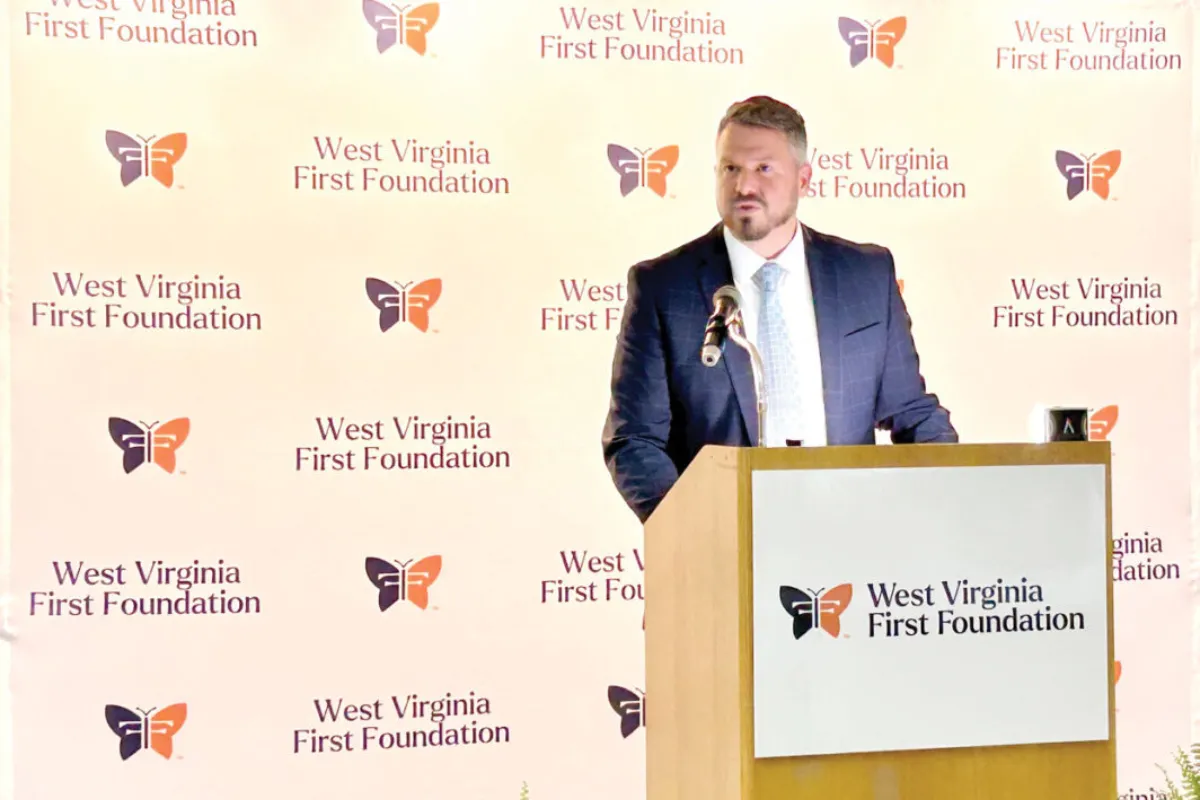In a major step toward fighting West Virginia’s substance use crisis, the West Virginia First Foundation celebrated its first round of grant recipients on Tuesday at a special event in Flatwoods. The private nonprofit, created to manage opioid settlement funds across the state, honored 94 community-based projects through its Initial Opportunity Grant program.
The program, first approved in September 2023, was created to distribute $19.2 million in funding across six regions of the state. So far, approximately $17 million has been awarded to projects focused on reducing addiction, preventing drug use, and supporting recovery. Supplemental funds were added in April, and the first round of distributions is expected by the end of May 2025.
“Today is more than a ceremony—it’s a milestone,” said Matthew Harvey, chairman of the West Virginia First Foundation and Jefferson County prosecuting attorney. “This marks the beginning of a new era in how we address substance use disorder in our communities.”
Jonathan Board, Executive Director of the foundation, praised the awardees, calling them “proof that bold ideas grounded in community and compassion can drive real change.”
The awarded projects are targeted across four key areas:
- Drug Diversion and Interdiction (32.4%)
- Youth Prevention and Workforce Development (23.5%)
- Child Advocacy and Neonatal Care (21.8%)
- Transitional and Recovery Housing (22.3%)
Among the regions, Region 5—covering counties like Kanawha, Cabell, and Logan—received the largest portion, securing 21% of the funds. Regions 4 and 6 closely followed, each receiving around 20%. Region 1, which includes the Northern Panhandle, received the smallest share at 7.2%.
Eligibility was limited to nonprofits with 501(c)(3) status or those serving public interests. Each application underwent thorough review by an expert panel with experience in law enforcement, healthcare, recovery, and legal systems. Projects were judged based on their alignment with the foundation’s vision, their sustainability, and their potential impact.
The West Virginia First Foundation was formed under a 2023 memorandum of understanding involving all 55 counties and over 220 cities. This agreement ensures fair distribution of funds from a $940 million opioid settlement involving pharmaceutical companies such as Johnson & Johnson, CVS, Walgreens, and others. To date, the state has received $290 million.
“We don’t have a billion dollars today. We have $290 million—and that has to last,” Harvey emphasized. “This crisis won’t vanish overnight, so our job is to make sure the money outlives us and helps generations to come.”
Under the settlement terms, 72.5% of the funds go to the West Virginia First Foundation, 24.5% to counties and cities, and 3% to the Attorney General’s Office.
Former Attorney General Patrick Morrisey, who helped establish the foundation, urged continued collaboration. “This foundation has the chance to be the glue that brings everyone—governments, private sector, and community organizations—together to solve big-picture issues.”
Current Attorney General J.B. McCuskey echoed those sentiments, calling the grant celebration “inspiring.” He said, “These recipients finally have the level of funding they need to make real change—and we’ll be here to support them every step of the way.”
West Virginia continues to battle high overdose rates. In 2022, the state reported 80.9 drug overdose deaths per 100,000 residents—the highest rate in the country. Fentanyl was involved in the majority of the 1,134 recorded fatal overdoses in 2021.
Still, there is reason for hope. The West Virginia Department of Human Services reported a 40% drop in overdose deaths from January to October 2024 compared to the same period in 2023. That trend exceeds the national average, showing real progress in the fight against addiction.
Dr. Karen Scott, president of the Foundation for Opioid Response Efforts (FORE), called the progress encouraging but warned against easing efforts. “This is not the time to stop,” she said. “Overdose rates remain too high, and we’re still above 2018 levels when we first identified this as a public health crisis.”
The celebration marked the beginning of a hopeful chapter for West Virginia, one focused not just on recovery but on building a future where every resident has a chance to thrive. As Jonathan Board noted, “This is just the beginning—we’re investing in something bigger than ourselves.”
















